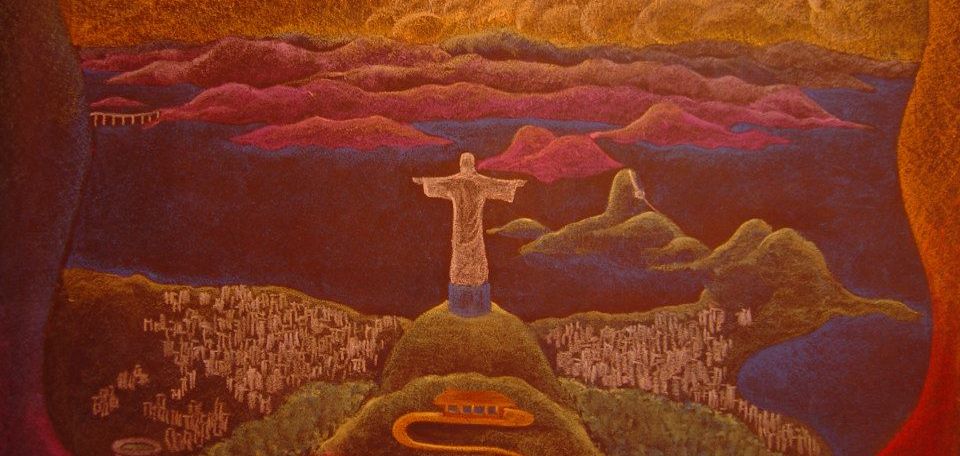[print-me target="body"]
by Ruth Salles
The meditation called the Foundation Stone, by Rudolf Steiner, refers to the poor hearts of shepherds and the wise heads of kings. The expression poor hearts of shepherds is linked to the line of contemplatives, as opposed to the reflective, conclusive line of the wise heads of kings, of those who tread the path of wise magicians. The magi studied the stars, concluded the time of the birth of the Messiah, then traveled to Bethlehem. The shepherds were already in the field, looking distractedly at the stars, even without seeing them, when the revelation of the angel comes to them, that is, the face of God (the angels) removes its veil, discovers itself. It is the meaning of the word discovery. And the shepherds hear: "To you is born this day in the city of David a Savior, who is Christ the Lord...you will find a child wrapped in swaddling clothes and lying in a manger." They just run and find the Boy.
Luke's Gospel shows this way, that of contemplation; that of Matthew shows the other, that of wisdom. Luke's speaks only of shepherds, Matthew's only speaks of Magi. Thus, each of these gospels shows a path of human thought, which does not come from a choice, but from the tendency of each one. In the poor hearts of pastors, the word poor does not refer to material poverty, but to the emptying of the contemplative mind, which puts aside the judgments of their own and others, the accumulated wealth of ready-made ideas, and becomes poor – with an “empty wallet” , shall we say – making room for the new.
This whole preamble was to say that my path is that of the poor hearts of pastors, as I often find myself looking at nothing, distracted. In fact, I now imagined the Nothing saying to me indignantly: “In me I contain everything. How am I called Nothing?” In one of those moments of simply looking without seeing, I had just read an article by Miguel Reale on Humility. In it the author cites the definitions of this word found in two dictionaries. The one from Caldas Aulete says: “Virtue with which we manifest the feeling of our weakness or of our little or no merit.” Antônio Houaiss says: “Virtue characterized by the awareness of one’s limitations, or feeling of weakness, of inferiority in relation to someone or something.” So I went to consult Aurélio. And there it was: “Virtue that gives us the feeling of our weakness.”
But virtue... virtue is a predisposition to always do good. The use of this word in the definition of humility seems to come from the well-meaning attempt to impose good behavior on men. Humility… humility… And then I looked at the Nothing – by the way, at the Nothing that contains Everything – and the word pulled a little bit of the mantle that covered it.
Humility comes from humus – earth. Humility is the result of the realization of our fallibility, because, despite our haughty thinking mind, we are still subject to the earth, to the mineral in the components of our body, to the vegetable in the functioning of our organism, to the animal in impulses, appetites, emotions. We are fallible even within our limitations (cited in Houaiss) and even within our merits (cited in Aulete), merits that we have, yes, we always have some. Ah, our feet, so to speak, are anchored to the earth – humus – by the force of gravity. The force of gravity even seems like Nature's laughter in the face of the haughtiness of the thinking human being.
I looked again at the Nothing that contains Everything and saw that humility is even simpler than that. It is just a condition, or quality, of man trapped in the situation of being terrestrial. That's why to humiliate is to lower, to destroy, that is, to leave the other down, shallow, on the ground, everything having to do with humus.
Now, virtue is, considering oneself fallible, and therefore humble, not to judge the fallible actions of others. Judging, only in the sense of considering, appreciating with one's own judgment, but not in the sense of condemning, antagonizing or attacking the faults of others with our limited understanding of everything. In fact, this fallibility of man as a terrestrial being is funny: the animal does not harm the harmony of the universe, neither the vegetable nor the mineral. Only the thinking human being. I wonder why?
****







